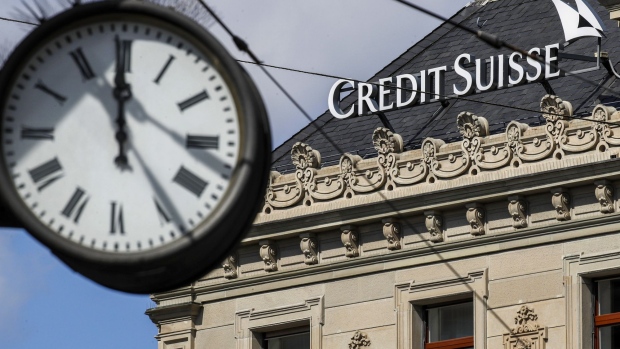Apr 19, 2021
Credit Suisse Weighs Sale of Greensill Funds’ Distressed Assets
, Bloomberg News

(Bloomberg) -- Credit Suisse Group AG is considering selling some of the troubled assets in a group of funds linked to financier Lex Greensill to help accelerate the liquidation of the scandal-hit strategy.
The bank weighs selling the notes at a discount to distressed debt firms, according to people familiar with the matter. Other options include enforcing claims on insurance policies, or seeking to recover assets from debtors in court, the people said, asking not to be identified in discussing internal deliberations.
A spokesperson for the Credit Suisse declined to comment.
Credit Suisse has so far repaid about half of the $10 billion held in the strategy when it froze the money pools in March over valuation uncertainties, setting of a chain of events that culminated in the collapse of Greensill Capital. Investors in the funds, including some of the lender’s wealthiest clients, are facing potentially steep losses after the bank last week indicated that it may not get full recovery on about $2.3 billion of assets.
The questionable notes in the funds are related to three counterparties -- Sanjeev Gupta’s GFG Alliance, SoftBank Group Corp. portfolio company Katerra Inc., and Bluestone Resources Inc., a coal-mining company owned by the family of West Virginia Governor Jim Justice II. Of these, the exposure to Gupta is the largest at $1.2 billion, Credit Suisse has said.
Gupta’s metals and commodity trading group is seeking to stave off insolvency after Greensill, its largest backer, collapsed in March. Katerra ran into troubles last year and needed a bailout from SoftBank. Bluestone has said in a lawsuit that it faces a “clear and present threat” after Greensill’s demise.
Credit Suisse marketed the Greensill-linked funds as some of the safest in its lineup, because the loans they held were backed by invoices usually paid in a matter of weeks. But as the strategy grew, they strayed from that pitch and much of the money was lent through Greensill Capital against expected future invoices, for sales that were merely predicted.
The Swiss bank is leaning toward letting clients foot the bill for eventual losses because it considers that the risks around Greensill were known and the funds were only marketed to investors able to assess such risks, a person familiar with the matter has said.
©2021 Bloomberg L.P.


